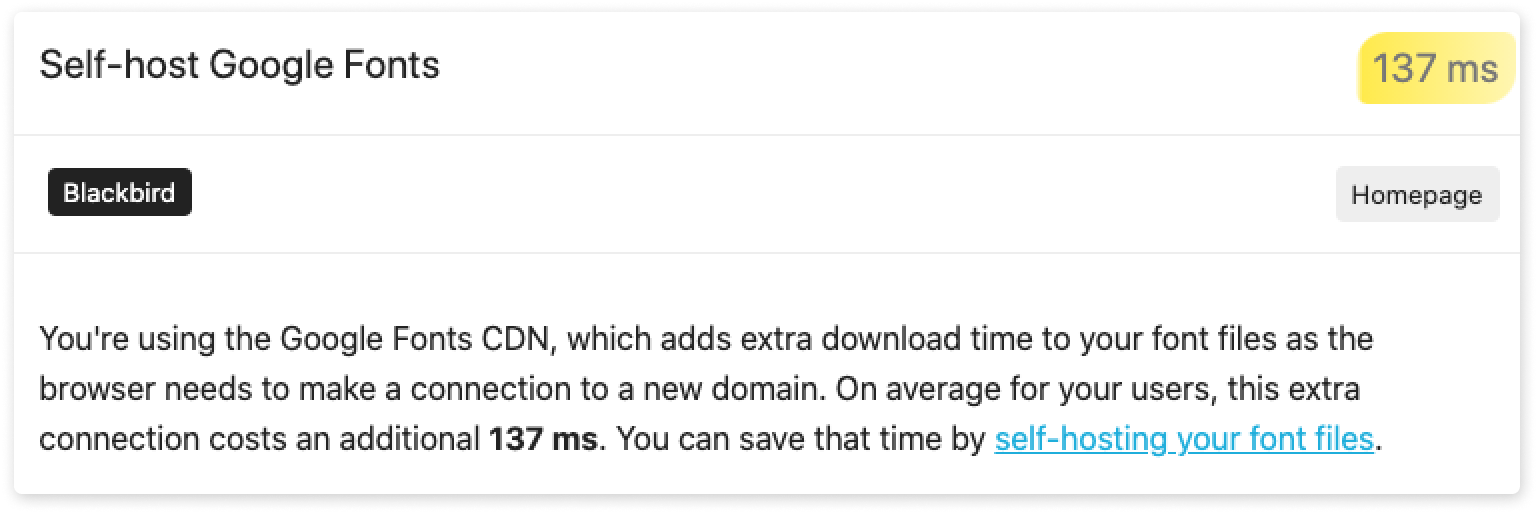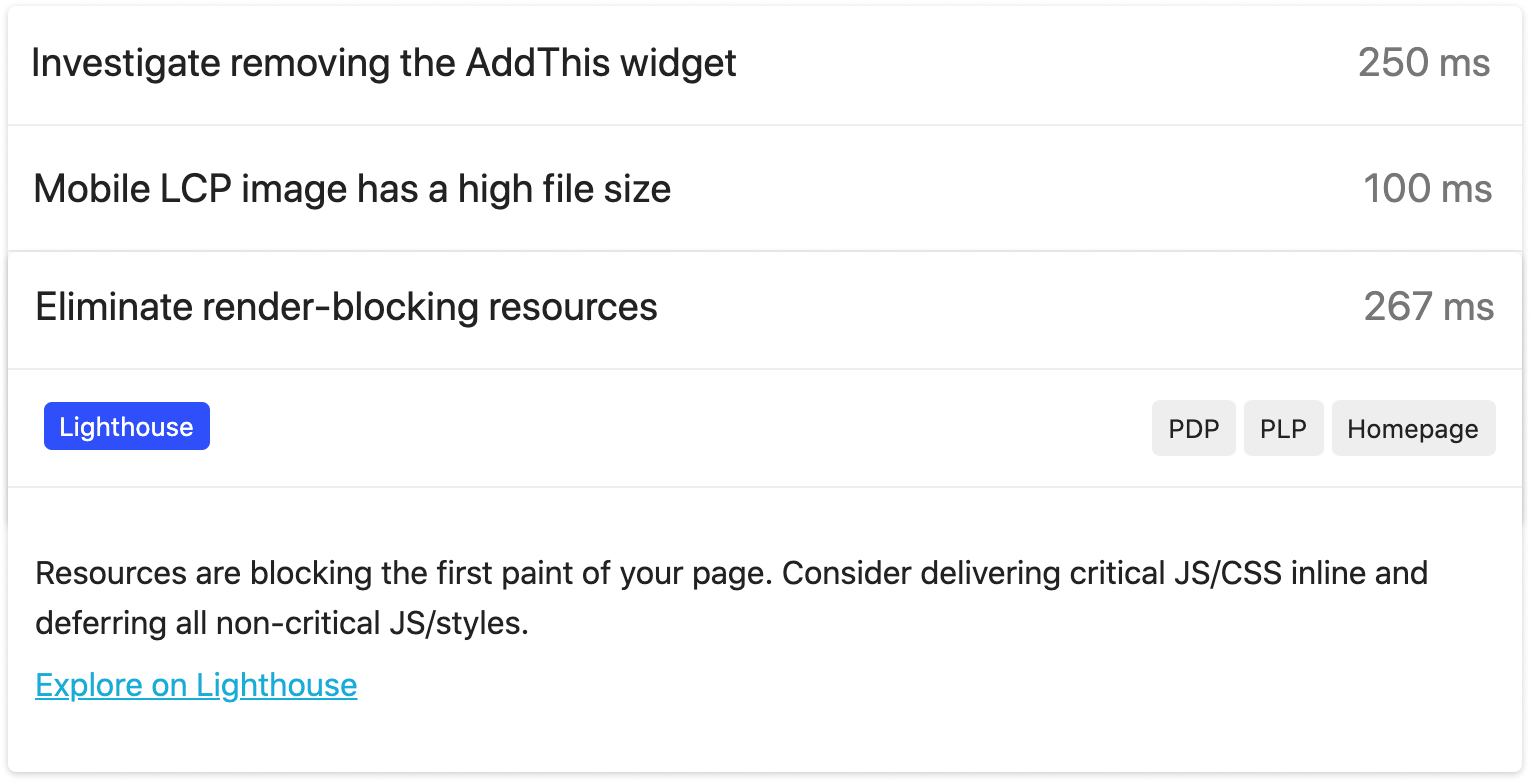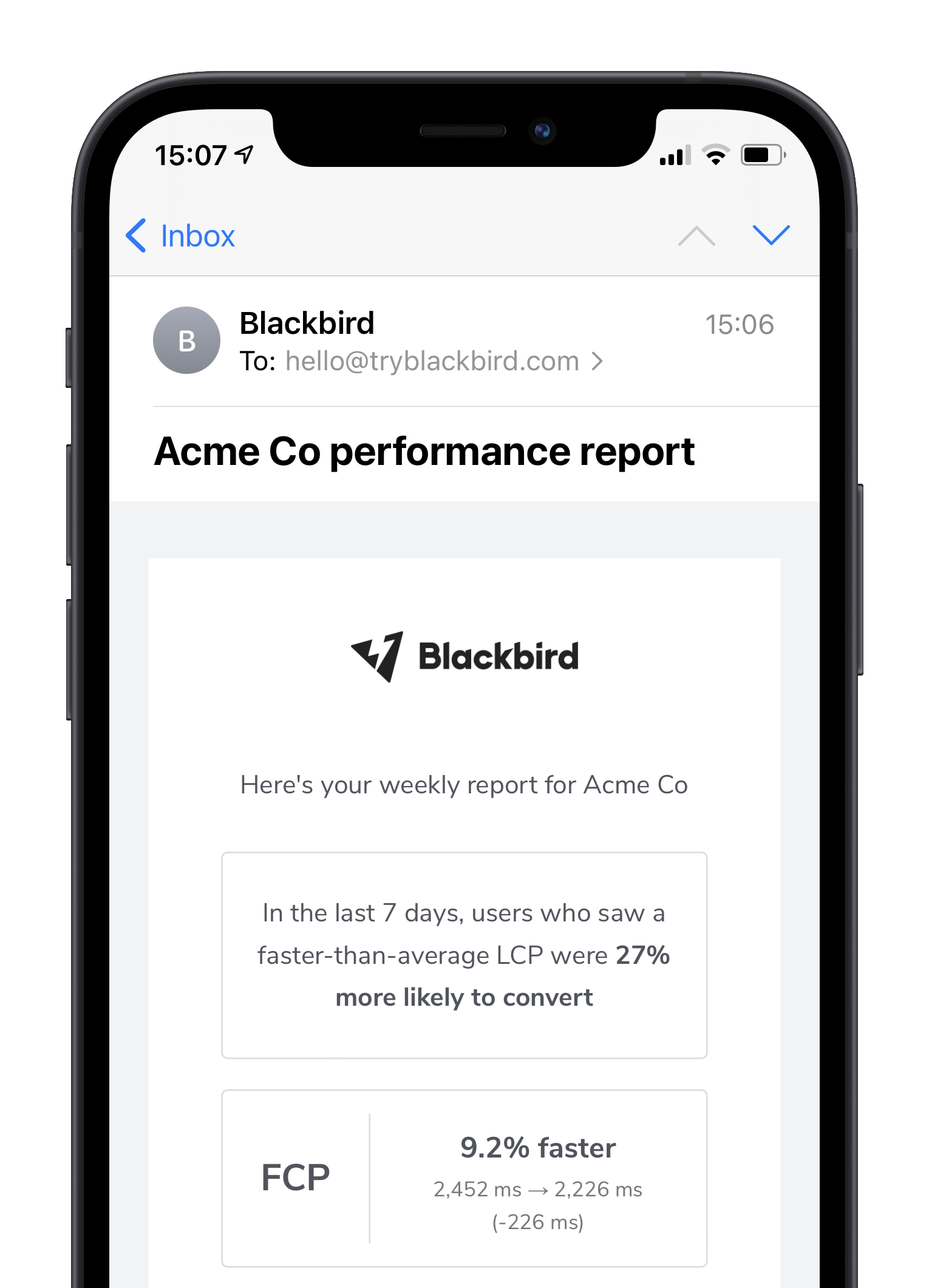What's slowing your site down?
Every day Blackbird runs a series of audits across your site, alerts you to new issues and tells you how to fix them
Start Your Free Trial No credit card requiredSpot issues before they become issues
There are lots of things that can slow your site down - some obvious, some less so. Blackbird automatically checks for anti-patterns (and we're adding more all the time) to keep you informed, up-to-date, and to help you fix issues quickly.
- Does the CSS use @import?
- Is there an anti-flicker snippet?
- Does it use the Google Fonts CDN?
- Is the LCP image lazy loaded?
- Does the site use an icon font?
- Does the LCP image have a high file size?
- Is a YouTube embed slowing the page down?
- Does the LCP element rely on CSS and JS?
- Does it use a Bootstrap CDN?
- Are polyfills served to modern browsers?
- Does the site use an extended SSL certificate?
- Is the LCP image on a different domain?
- Are there <img> tags in the head?
- Is the site using a jQuery CDN?
- Are there base64 images in the CSS?
Realistic estimates for speed improvements
Because Blackbird tracks speed metrics for your visitors, it can give you more reliable, realistic estimates for speed savings. Like exactly how much faster you'd be if you self-hosted your Google Fonts, down to the millisecond.

Enhanced with Lighthouse
Lighthouse is one of the most loved site speed auditing tools and while we run our own testing suite, we also bring in Lighthouse data - so you can see everything that you need to work on, all in one place.

Alerts keep you in the loop
Blackbird checks your site for speed issues daily - and sends you an email alert if it discovers anything new, so you can be the first to know if there's anything that needs changing.

Try it for free today
Start your free 30 day trial - no credit card required
Start Your Free 30 Day Trial No credit card required
Common Questions
Isn't this just a Lighthouse audit?
No - while we do run a Lighthouse audit on select pages on your site, we also run a lot of our checks. We check for things like whether you're using the Google Fonts CDN (which can slow things down), if you're using an anti-flicker snippet with your A/B testing software (which can delay rendering times), and lots more.
And we also enhance the Lighthouse data that we get. For example, Lighthouse can tell Blackbird what the page's LCP image is, and Blackbird can then run checks to see if the file size of that image is too high, if it's lazy loaded on the page (which can delay how long it takes to render), if it's hosted on a third-party domain (which can make it take longer to load because the browser needs to set up a new SSL connection), and more.
Does it run checks on every page of the site?
No - it's much more efficient to run audits on a sample of page templates, so Blackbird will run checks on the homepage, an example category page and an example product page. It makes the testing run much faster, ensures we don't end up hammering your site by trying to crawl every page, and means we can deliver the findings to you as quickly as possible.
How does Blackbird work?
Blackbird is a lightweight tracking tag that you add to the site. It captures metrics like SSL connection time and Time To First Byte, as well as more frontend focused metrics like First Contentful Paint, Largest Contentful Paint and JavaScript CPU time - and it does this for your actual visitors, so you can a true picture of your page timings.
You also need to add a small piece of code on your Thank You page so that it can register that a user has converted, and what the order value was. This let's Blackbird tell you if faster visits have a better conversion rate, and tell you how much extra revenue could be made from making site speed improvements.
Does the tracking tag have a performance impact?
All JavaScript tags will have some impact, but we've worked hard to ensure ours has as small an impact as possible. It's less than 5kb, served from a CDN, and loads asynchronously. It's not on your critical path and won't delay rendering - and we also fully support deferring the tag, so it only has a minimal impact.